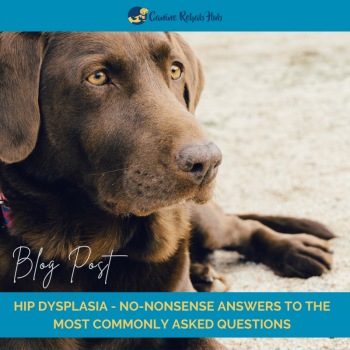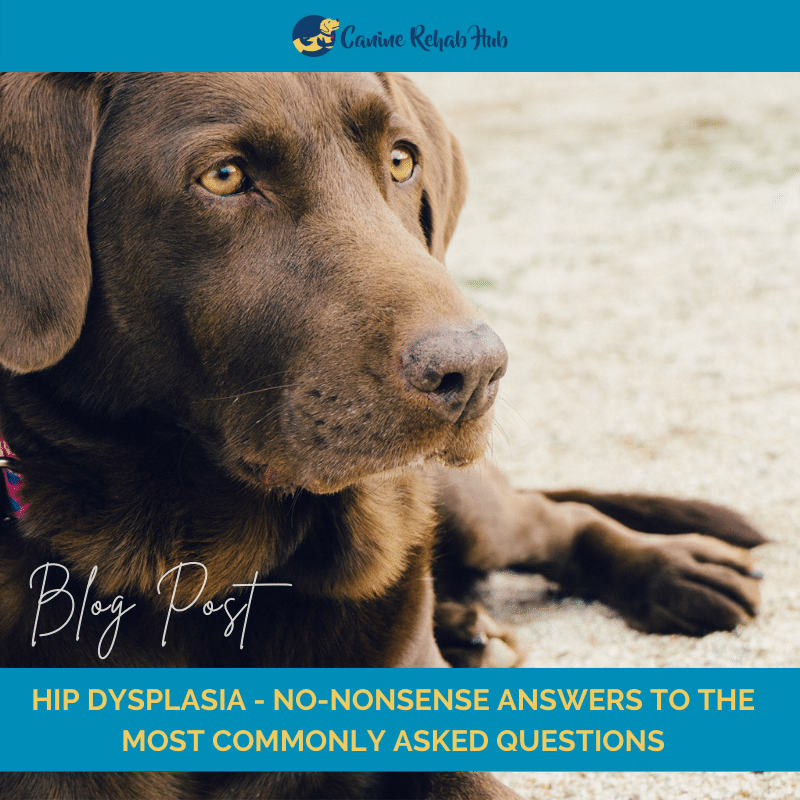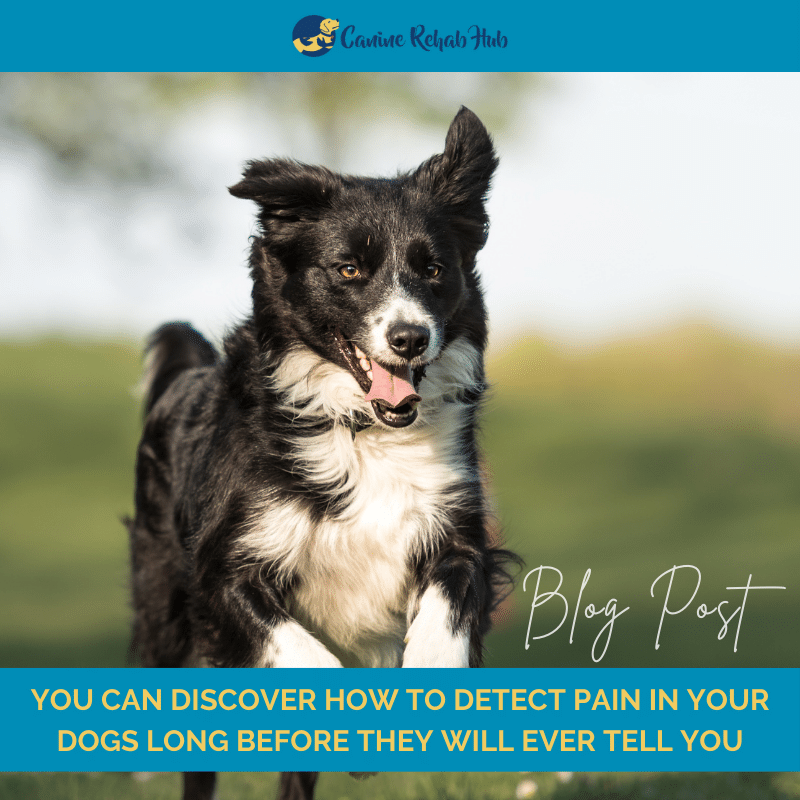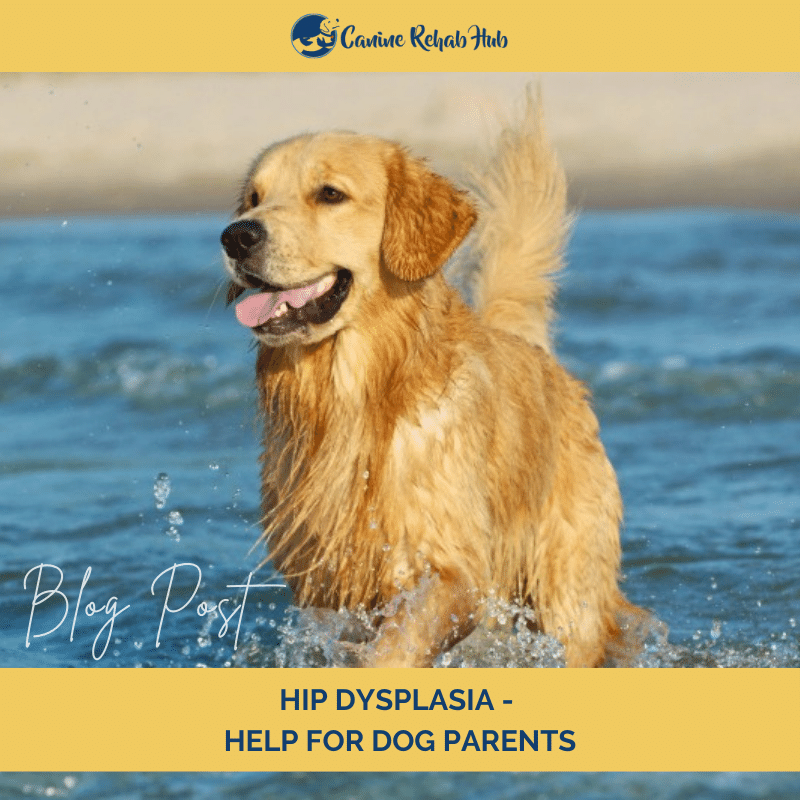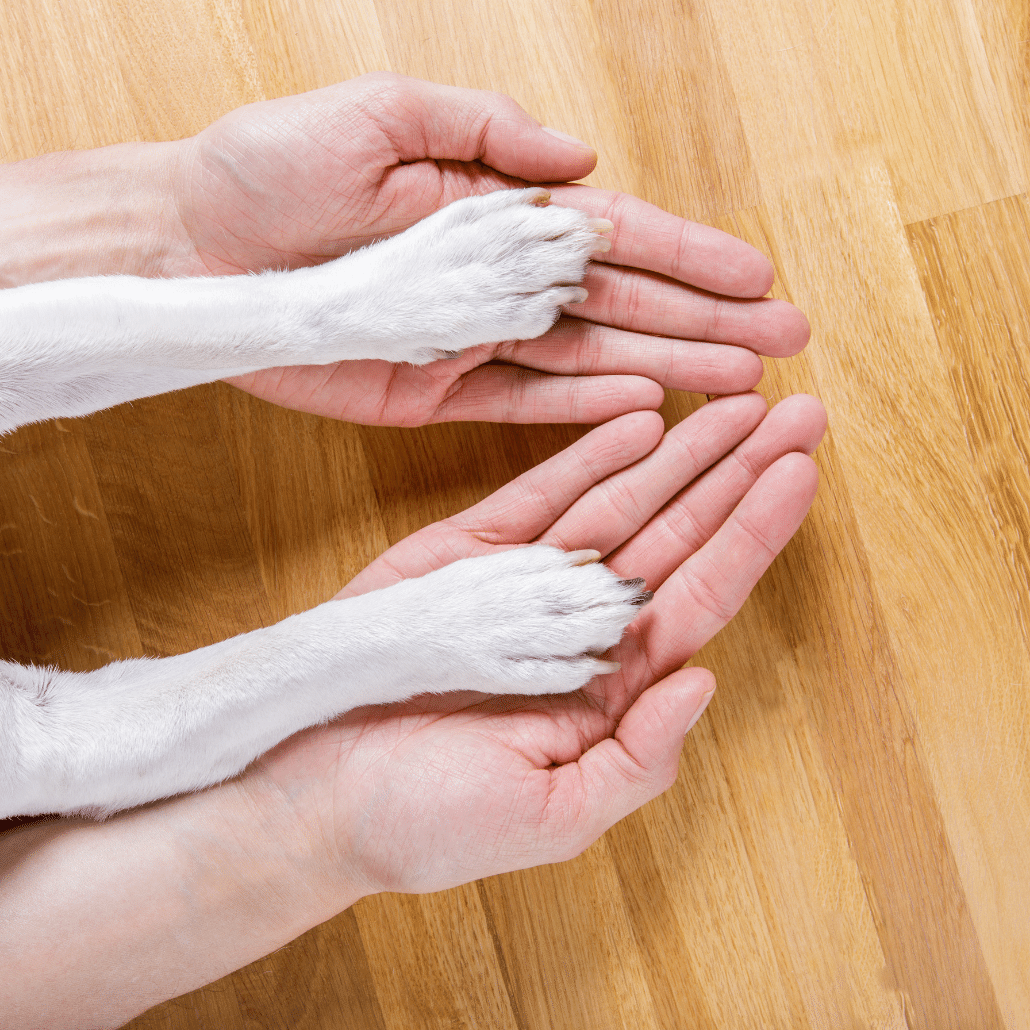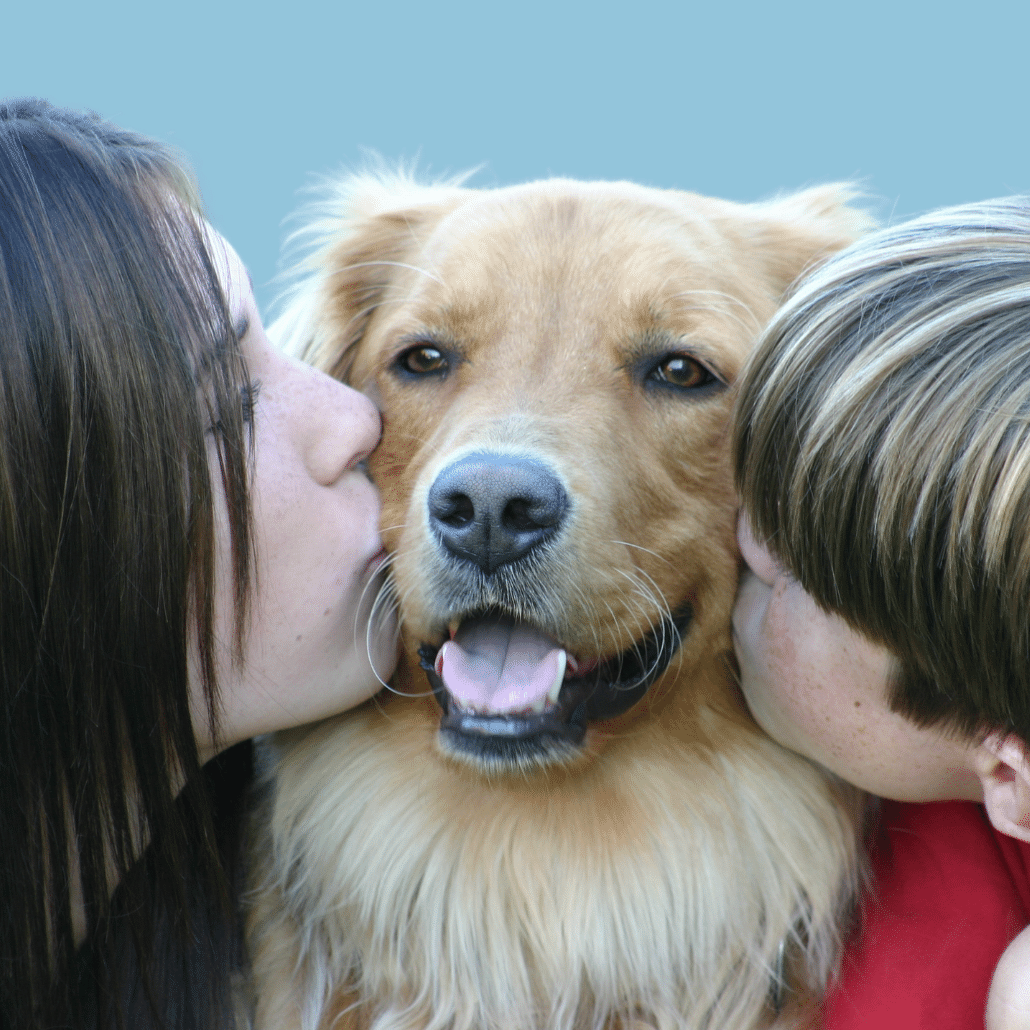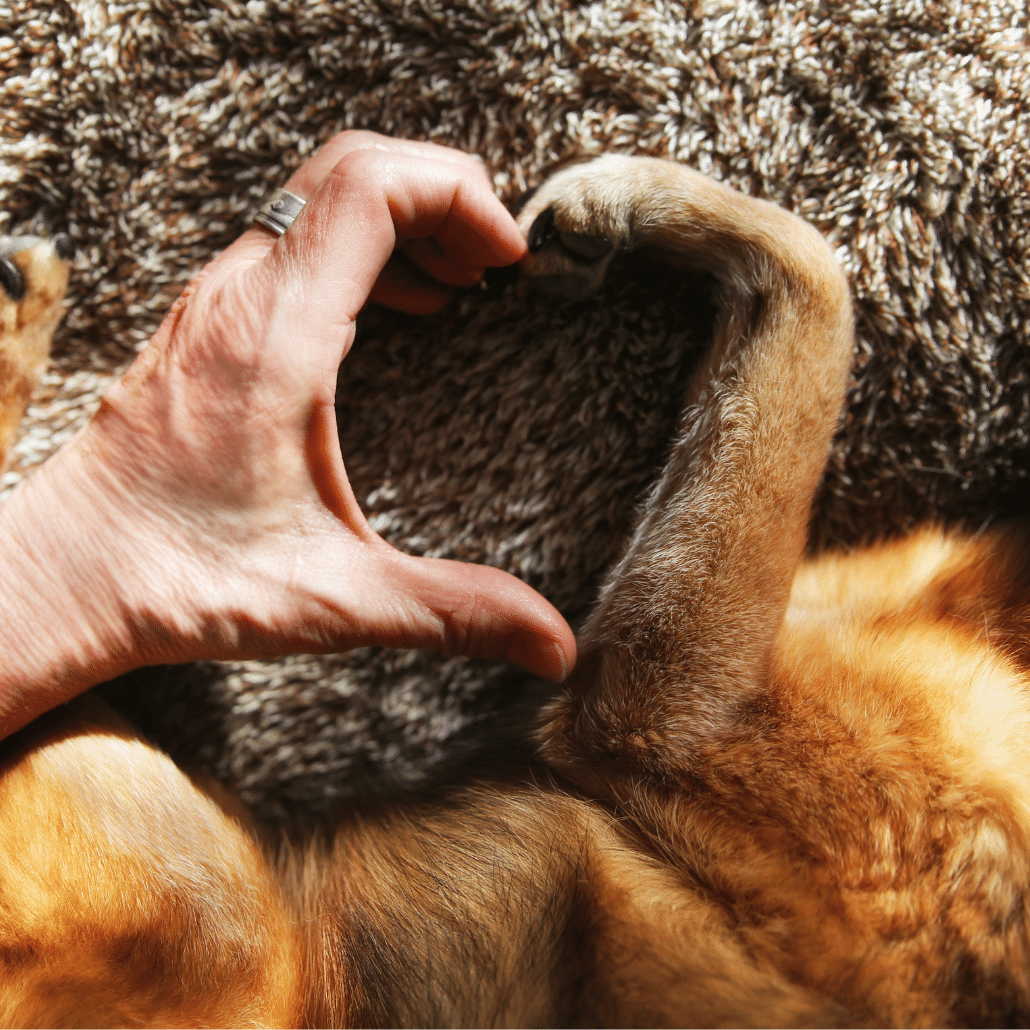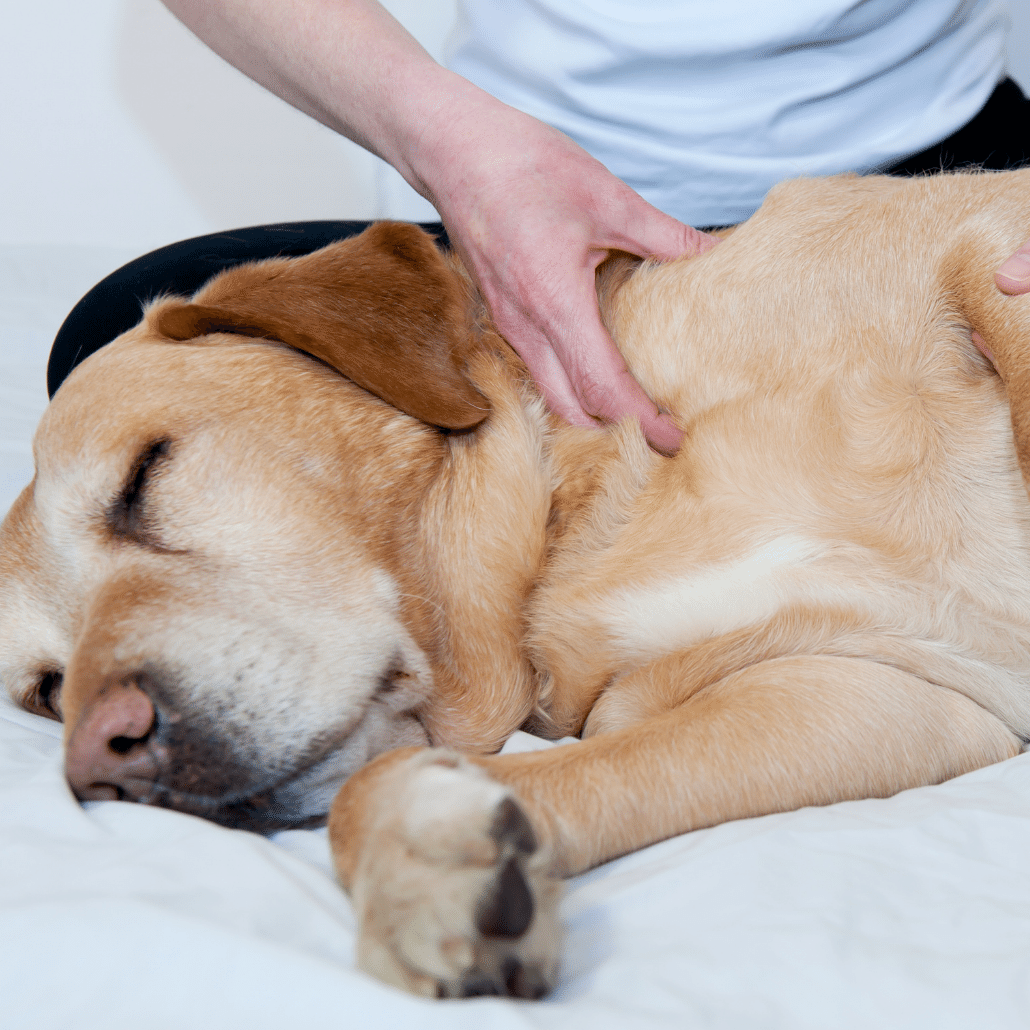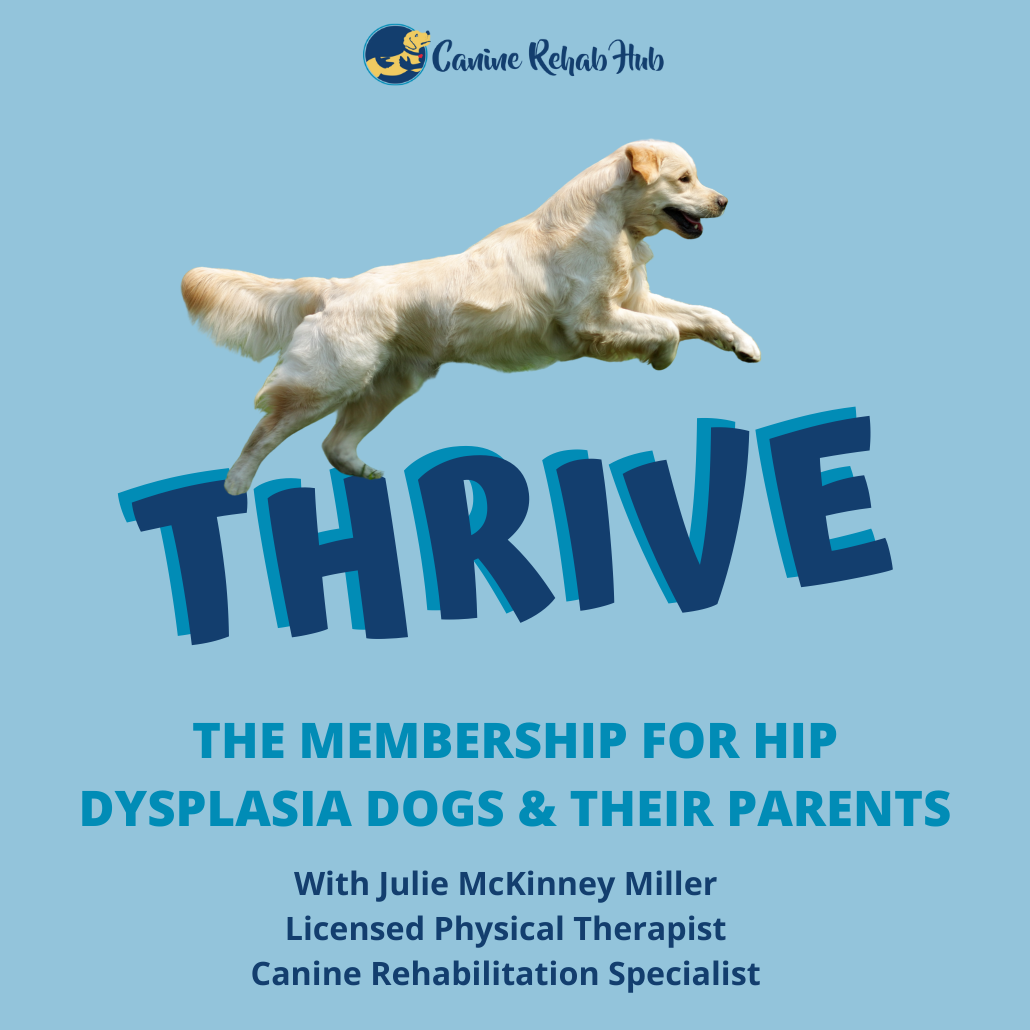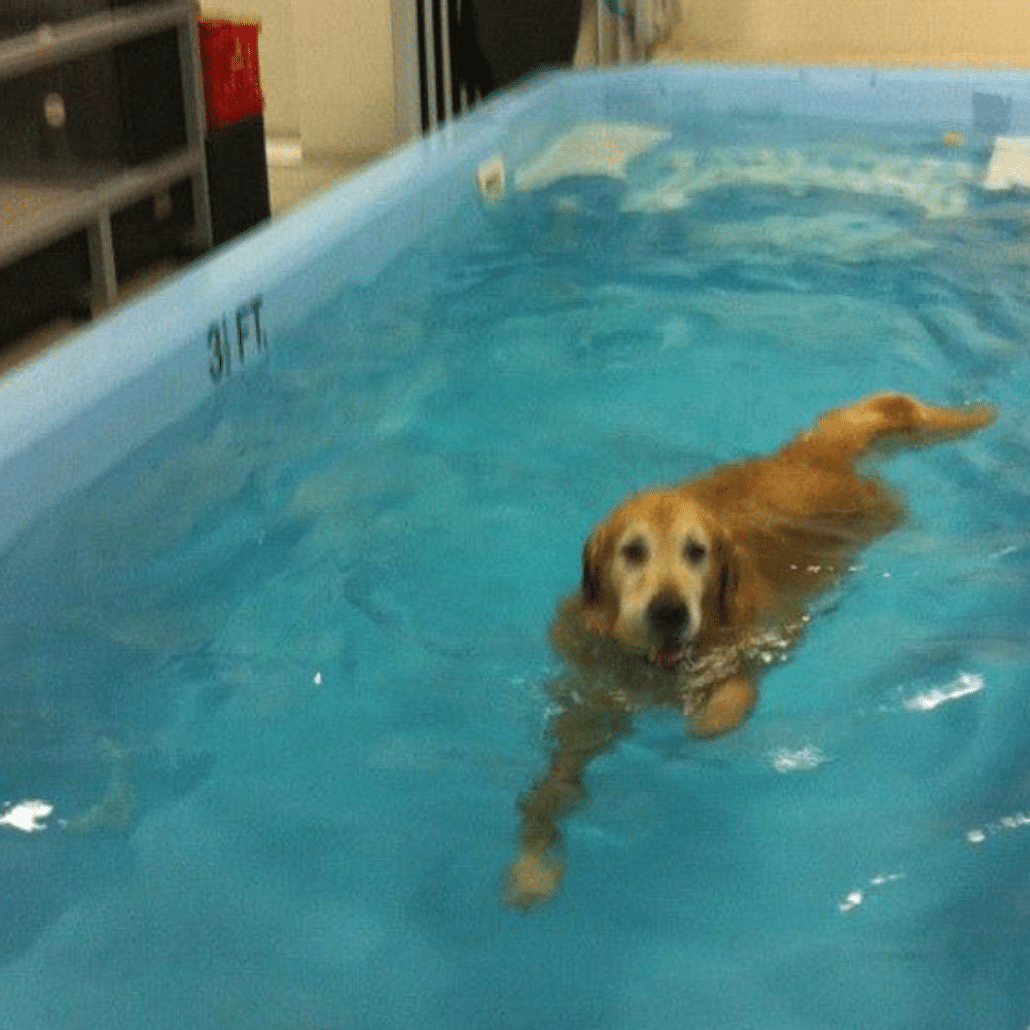Here You Go - No-Nonsense Answers To The Most Commonly Asked Questions About Canine Hip Dysplasia By Dog Parents on Google...
When it comes to canine hip dysplasia questions, dog parents have a lot of them. This blog will provide accurate answers to the most commonly asked questions about hip dysplasia.
Hip dysplasia, hip dysplasia, hip dysplasia…the dog world hears about it so often and of course, I do too, as a canine physical therapist! But keep reading to see why I am scratching my head in disbelief…
…and why I feel compelled to write this!
There are so many canine hip dysplasia questions typed into Google each month, each week, each day from dog parents looking for more information about hip dysplasia in dogs. The internet has become an incredible source of knowledge right at our finger tips. Simply type in a question and boom…answers galore! But, how do we know if they are good answers or not?
There's So Much Mis-Information Online About Canine Hip Dysplasia and Questions Dog Parents Often Have...
And sadly, this mis-information related to commonly asked canine hip dysplasia questions is leading dog parents in the wrong directions. As dog parents, we really need to be sure we are getting information from reliable and competent sources. Look at this list of canine hip dysplasia questions that surfaced (these are very common questions asked of “Professor Google”):
1. Can dog hip dysplasia be caused by an injury?
2. Can dog hip dysplasia be cured?
3. What does dog hip dysplasia look like?
4. Can dogs with hip dysplasia run?
5. Can dogs with hip dysplasia live long?
6. Can dogs get hip dysplasia in the front legs?
7. Can dogs with hip dysplasia have puppies?
8. Can dogs with hip dysplasia jump?
9. Do dogs with hip dysplasia sit funny?
10. Do dogs with hip dysplasia limp?
11. Can dogs recover from hip dysplasia?
12. Can dogs live with hip dysplasia?
13. Can dogs die from hip dysplasia?
14. Do dogs with hip dysplasia have to be put down?
This is just one batch of commonly asked canine hip dysplasia questions typed into google each month. But, most of them are quite serious and all of them warrant an answer. No frills, no fuss. Just a solid answer based in truth.
That’s what I’m all about… I’m not EVER going to pretend to know something I do not. There is plenty I do not know. I promise to be the first to tell you, “I don’t know” when I don’t.
But, what I do know and know well, I will share it and often with a strong voice because I believe it is my duty to help dogs and their people as much as possible. 
So, let’s get at least this list of canine hip dysplasia questions answered and then we can move on to others in future blog posts, videos and more.
Canine Hip Dysplasia Question #1:
Can dog hip dysplasia be caused by an injury?
Answer: Not the typical hip dysplasia that we so often hear about. Hip dysplasia has to do with how hip joints are formed and how the “ball” of the femur and the “socket” of the pelvis fit together. In contrast, a dog could dislocate a hip during a traumatic injury. But, that is not the same thing as hip dysplasia. I’ve seen it referred to as hip dysplasia when a traumatic injury causes damage to the cartilage in the hip joint and that can then lead to wear and tear and create a similar situation as your typical malformation of the joint type of hip dysplasia that is most common.
Canine Hip Dysplasia Question #2:
Can dog hip dysplasia be cured?
Answer: Well, no. “Cured” is not the right word. You simply can’t change the formation of the bones and how well they fit together or not. We can modify it to some degree with physical therapy and proper strengthening to provide better support to the joint. The better question is – “Can hip dysplasia be treated?” And that gets a big YES!
My favorite way to treat hip dysplasia is with conservative management – by developing a great home program, building excellent strength and stability in the hips. I’ve also seen hundreds of dogs do extremely well with no surgery (even when it was highly recommended by the surgeons).
It is very important to listen to your dog. Yeah, I know, they don’t talk… but they do communicate…and they can tell us a lot. The more “in tune” you get, the more you’ll understand and be able to interpret their signals properly.
Canine Hip Dysplasia Question #3:
What does dog hip dysplasia look like?
Answer: Think of it like a ball not fitting perfectly into a socket. When the ball of the femur does fit well in the socket, you get good movement and minimal wear and tear over the years. When the fit is not ideal (for example, the ball may be sitting a little high in the joint), then you can get some scraping of bone on bone (or cartilage on cartilage) and it is painful and wears down over time. The body accommodates for this though by laying more bone down over time. So, it is very common to see it be most painful for dogs when first discovered (most often at a young age) and then it bothers them less as they get older. However, arthritis is inevitable.
There’s simply no way around arthritis, short of a hip replacement or FHO. But, if you can’t afford that surgery or don’t feel it is the right choice for your dog, that is more than okay. Remember, we get arthritis too and it’s not the end of the world for us, right? Our dogs are the same. And they can tolerate arthritis well. Much more on arthritis in future blog posts.
Canine Hip Dysplasia Question #4:
Can dogs with hip dysplasia run?
This is a really good canine hip dysplasia question that I see asked by dog parents every single day!
Answer: Yes, they sure can. However, depending on how they are doing, at what stage they are in, if they are flared up, just got diagnosed, just had surgery, etc. (there are so many factors), it may not be ideal for your dog with hip dysplasia to be running at this time. Again, seeking the opinion of your veterinarian and your canine physical therapist is best.
To give you some perspective and perhaps some good news, I have worked with hundreds of dogs with hip dypslasia who have not had surgery and running and fetching balls ended up being part of their regular exercise/therapy each day to keep their muscles strong, once they achieved a level in which that would not cause flare-ups. So, keep your chin up! 😉
Canine Hip Dysplasia Question #5:
Can dogs with hip dysplasia live long?
Answer: Of course, they can! They can live just as long as any other dog. More on this with the last couple of questions in this list.
Canine Hip Dysplasia Question #6:
Can dogs get hip dysplasia in the front legs?
Answer: Nope. Dogs do not have hips in the front legs. However, elbow dysplasia is fairly common and if you are concerned about your dog having a forelimb issue, that is something to look into and ask your vet about. I have seen it a lot in older labrador retrievers and their elbow joints feel quite “thickened” with a decrease range of motion in them.
Canine Hip Dysplasia Question #7:
Can dogs with hip dysplasia have puppies?
Answer: Yep, they sure can. But, I wouldn’t recommend it or be in favor of it since it is ususally a congenital or genetic issue. Reputable breeders will not breed their dogs who have hip dysplasia. You can look more into hip ratings by OFA and PennHIP by clicking the links below.
https://www.ofa.org/diseases/hip-dysplasia
https://antechimagingservices.com/antechweb/pennhip
Canine Hip Dysplasia Question #8:
Can dogs with hip dysplasia jump?
Answer: Yes, they can, but it might hurt. Jumping up on the back legs or jumping forward and propelling off of the hindlimbs causes the back legs to go into more hip extension (legs farther behind body) and this motion often causes pain in dogs with hip dysplasia. So, jumping can cause irritation, inflammation, pain and the dreaded flare-ups that I’m always talking about avoiding. It all depends on your dog’s functional ability and what he or she can tolerate. Most dogs will hesitate if they know something is going to hurt. In that case, just lift your dog into the car, if that is what the case may be.
We will talk much more about running, jumping, and other strenuous exercise types in future blog posts, video posts, and in online programs and courses.
Canine Hip Dysplasia Questions #9:
Do dogs with hip dysplasia sit funny?
Answer: Not always, but they can. A much more common sign that you’d see is “bunny hopping” when they run (back legs moving together at the same time). If a dog sits with one leg out to the side instead of up underneath his or her body, it might warrant a looksie into the hips and the knees (or “stifles” as they are called in dogs).
It really depends on each individual dog and what issues they have that we may not even be aware of yet. Just as we compensate and shift our bodies and postures to maximize comfort and decrease pain, our dogs do too! So, be on the lookout for anything out of the norm.
Canine Hip Dysplasia Questions #10:
Do dogs with hip dysplasia limp?
Answer: You bet they do! It is not always visible to the untrained eye. But, almost always, they are shifting their weight distribution to adjust for the painful or weak leg. Remember the “bunny hopping” I mentioned above? They do this to avoid increased hip extension which hurts. If your dog has hip dysplasia in just one leg, you can expect the other hindlimb to take some extra weight. If both hips have hip dysplasia, you’ll likely see your dog shifting his or her weight forward as well.
Canine Hip Dysplasia Question #11:
Can dogs recover from hip dysplasia?
Answer: I don’t think “recover” is the right word. Hip dysplasia is just a poorly formed joint and so it leads to wear and tear and arthritis. There’s really no “recovering from” that. It just happens. And we just have to deal with it. We can treat hip dysplasia and minimize its impact, for sure.
Canine Hip Dysplasia Question #12:
Can dogs live with hip dysplasia?
Answer: They sure can, just as we can live with arthritis or a sore joint, so can they! In a nutshell, it is a bummer to find out your dog has hip dysplasia. But, it’s a far cry from finding out that they have a highly metastatic cancer. Your dog will die from the latter. Hip dysplasia does not cause death.
Canine Hip Dysplasia Question #13:
Can dogs die from hip dysplasia?
Answer: NO!!! In a nutshell, it is a bummer to find out your dog has hip dysplasia. But, it’s a far cry from finding out that they have a highly metastatic cancer. Your dog will die from the raging cancer. Hip dysplasia does not cause death.
…which brings us to the last question for this blog…
Canine Hip Dysplasia Question #14:
Do dogs with hip dysplasia have to be put down?
Answer: No way!!! Don’t even think about that! Here is where my sassy side will come out because I get so angry when I hear that mis-informed vets have actually suggested to a dog parent to consider euthanizing their dog because of hip dysplasia! NO, No, no!!!
Would you put your human child down or end your own life over a painful joint that flares up with certain activities? Of course not! Same goes for your doggie children!
If anyone ever tells you to euthanize your dog because of hip dysplasia, please let me know so I can go knock some sense into them! Seriously, if any vet suggests this to you, please find yourself a new vet and I beg you not to end your dog’s life over something so minor!
I've Been There...I Totally "Get" It...
I know it feels shocking and scary and like your dog is going to be in way too much pain and it’s just not something you want your dog to have to endure for his or her whole life. Trust me, I know. I’ve been there. I get it.
My first dog, Tucker, had severe hip dysplasia and awful pain at first. The orthopedic surgeon said he would for sure need a hip replacement once he was full grown. But, he got off his pain medicine, never had surgery, and did great until he died of cancer at the age of 12.
And I’ve seen hundreds, probably thousands, of dogs by now follow this same pattern. So rest assured, I know it stinks. But your dog will be just fine. And there are lots of great veterinarians who are more holistic in nature and fantastic physical therapists who can assist you in making sure your dog lives his or her best and most comfortable and happy life!
Here’s another hip dysplasia blog you can read: Hip Dysplasia – Help For Dog Parents
Here’s to fetching your dog’s best life!
Sending lots of love to you and your dogs, 


